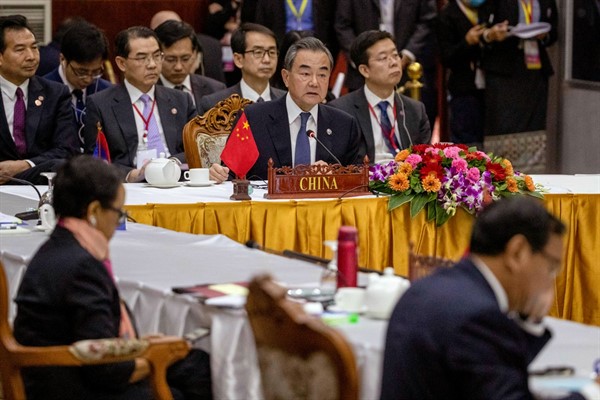With every major religion in the world represented, and political systems that range from relatively open democracies to authoritarian one-party states, Southeast Asia is one of the most spectacularly diverse regions in the world. It stretches from the highlands of northern Myanmar to the beaches of southern Thailand and the Philippines, and includes low-income economies like Laos and Cambodia, as well as Singapore, one of the wealthiest places in the world on a per capita basis.
Each of the 11 countries in this multifarious region, though, face a common foreign policy challenge: how to deal with the political and economic juggernaut to their north, China. Today on Trend Lines, WPR’s Elliot Waldman is joined by journalist Sebastian Strangio to discuss his new book, “In the Dragon’s Shadow: Southeast Asia in the Chinese Century.” Click here to read a transcript of an excerpt from the interview.
Listen:
Download: MP3
Relevant Articles on WPR:
Vietnam, Under Increasing Pressure From China, Mulls a Shift Into America’s Orbit
Why Is China Pressing Indonesia Again Over Its Maritime Claims?
Laos, Trying to Build Its Way to an Economic Boom, Could Be Sunk by Debt
Mahathir Positions Malaysia as a Check on China’s Ambitions in Southeast Asia
Trend Lines is produced and edited by Peter Dörrie, a freelance journalist and analyst focusing on security and resource politics in Africa. You can follow him on Twitter at @peterdoerrie.
To send feedback or questions, email us at podcast@worldpoliticsreview.com.




